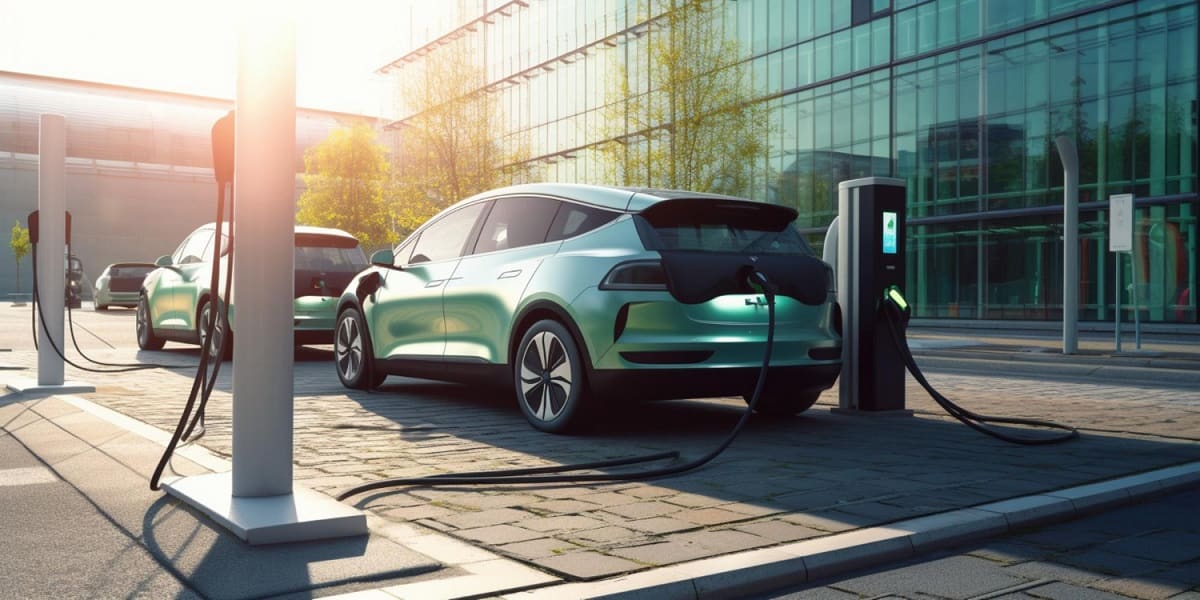Vietnam Announced 11 Standards for EV Charging Stations. Roles of EV Lawyers


The Ministry of Science and Technology has announced the establishment of 11 Vietnamese Standards (TCVN) related to electric vehicle charging stations, of which nine standards are for the charging stations themselves and two standards are for electric vehicle battery swapping. This is part of the efforts to develop Electric Vehicle (EV) and related Infrastructures industry in Vietnam.
The electric vehicle industry is accelerating at a rapid pace, and with it comes a complex array of regulatory frameworks that companies must navigate. EV lawyers play an essential role in this dynamic landscape, ensuring that companies in the EV and infrastructure sectors are not only compliant with current laws but are also prepared for the road ahead. These legal professionals become the navigators for businesses steering through the intricacies of EV-related legislation.
18 Standards Related to Electric Vehicle Being Developed
These 18 standards were developed based on the equivalent standards of the International Organization for Standardization (ISO) and the International Electrotechnical Commission (IEC).
The Ministry of Science and Technology is currently developing 18 standards related to electric vehicle charging stations and related electrical equipment such as charging heads, charging cables, and devices for measuring the electricity used to charge electric vehicle batteries. Additionally, the Ministry is amending and supplementing some laws regarding measurement for group 2 vehicles to include “devices for measuring electricity used to charge electric vehicle batteries. This revised circular is expected to be issued in 2024.
In the future, the Ministry of Science and Technology, along with other ministries and sectors, will research and submit for competent authority approval policies to support investors in developing electric vehicle charging station infrastructure and encourage consumers to use this type of vehicle.
Currently, in Vietnam, there is no policy to support the development of a network of charging stations, so the needs of the people are not being met. At a seminar held in November 2023 to promote the development of electric vehicles, it is reported that to date, the country has 20,065 electric cars produced, assembled, and imported that have been certified. This number is expected to grow in the future, but the charging station system is still very insufficient.
There are several reasons why the development of charging stations is limited in Vietnam, such as manufacturers having to invest in construction with high costs, leading to a long payback period, or the number of electric vehicles not yet exploding to attract charging station providers. In addition, there are other social and macro reasons from government policies.
Currently, there are five charging standards from Europe, the United States, Japan, China, and a global standard (including Europe, based on the standard developed by Tesla) for two types of AC (alternating current) and DC (direct current) charging pillars.
Therefore, experts recommend that the government strongly support electric vehicle manufacturers, charging station suppliers, and the public, along with prioritizing charging infrastructure on routes with high traffic density. Lastly, investment in the electricity grid infrastructure is needed to meet the requirements for expanding charging stations.
EV Lawyers: Navigating the Legal Currents in EV Infrastructure Compliance
EV Lawyers: Powering Compliance in the EV Sector
EV lawyers provide indispensable guidance to companies involved in the manufacturing, distribution, and installation of EV charging stations. Their expertise is critical in interpreting the 11 Vietnamese Standards (TCVN) on EV charging infrastructure, which align with international standards set by the International Organization for Standardization (ISO) and the International Electrotechnical Commission (IEC). EV lawyers work closely with clients to ensure that every charging station meets these stringent requirements.
With the Vietnamese Ministry of Science and Technology developing 18 additional standards related to EV charging stations and related electrical equipment, EV lawyers are essential in keeping companies informed and compliant. These standards cover a range of components from charging heads to the measurement devices for electricity used in charging EV batteries. EV lawyers review and advise on engineering designs, equipment procurement, and operational protocols to ensure full compliance with the evolving standards.
Charging Ahead: EV Lawyers and Infrastructure Investment
As the development of EV charging infrastructure in Vietnam is still in its infancy, with a significant need for network expansion, EV lawyers are at the forefront of facilitating this growth. They guide companies through the process of investing in and developing charging stations, providing legal insight into construction contracts, land use agreements, and the integration of charging stations into existing transportation networks.
Advocating for EV Growth: EV Lawyers as Policy Influencers
EV lawyers also act as policy influencers, advocating for supportive government policies that will benefit the EV industry. They engage with policymakers to develop incentives for investors and consumers, aiming to create a more conducive environment for the adoption of electric vehicles.
With their finger on the pulse of both legal and technological developments, EV lawyers assist companies in anticipating and adapting to policy changes. Their proactive approach helps clients to not only comply with current regulations but also to influence future legislative trends in the EV sector.
The Indispensable Current of EV Lawyers
The rise of electric vehicles is revolutionizing transportation and the way we think about energy. For companies in this burgeoning field, EV lawyers are the catalysts for success, ensuring that all aspects of EV infrastructure development are in line with legal requirements. These legal experts are not just advisors; they are strategic partners who enable companies to navigate the complex regulatory terrain with confidence.
As the EV industry continues to expand, the guidance of skilled EV lawyers will become ever more critical. They empower companies to charge forward, secure in the knowledge that their compliance is as robust as the electric currents fueling the future of transportation.
About ANT Lawyers, a law firm in Vietnam
We help clients overcome cultural barriers and achieve their strategic and financial outcomes, while ensuring the best interest rate protection, risk mitigation and regulatory compliance. ANT lawyers has lawyers in Ho Chi Minh city, Hanoi, and Danang, and will help customers in doing business in Vietnam.
How ANT Lawyers Could Help Your Business?
You could reach ANT Lawyers in Vietnam for advice via email ant@antlawyers.vn or call our office at (+84) 24 730 86 529
Recent Posts
5 Crucial Facts About ESG Laws in Vietnam That Could Save Your Business and Reputation
The Business World Is Changing Fast Rules are shifting. Expectations are rising. Eyes are watching. …
7 Powerful Reasons Why ESG Compliance in Vietnam Will Win You Trust, Growth, and Global Clients
Trust matters. Today, more than ever. Across industries, many companies are now being asked. directly…
7 Bold Reasons Why Tokenization in Vietnam Could Transform Your Future
Change is coming. Quietly. Digitally. Rapidly. Let’s imagine the situation, which assets are no longer…
Vietnam P2P Lending: 5 Bold Reasons Why Decree 94/2025 Could Empower Millions or Backfire?
A New Financial Chapter Begins in Vietnam One person lends. Another borrows. It’s that simple.…
5 Essential Lessons from Risk Management in Digital Assets in Vietnam: Protecting Trust in a Digital World
Trust Is the Real Currency Money can be lost. Tokens can vanish. Platforms can crash.…
5 Powerful Reasons Why Vietnam Digital Asset Sandbox Is a Bold and Hopeful Move for Innovation
Change is fast. Rules are slow. But innovation can’t wait. As digital assets grow, so…






